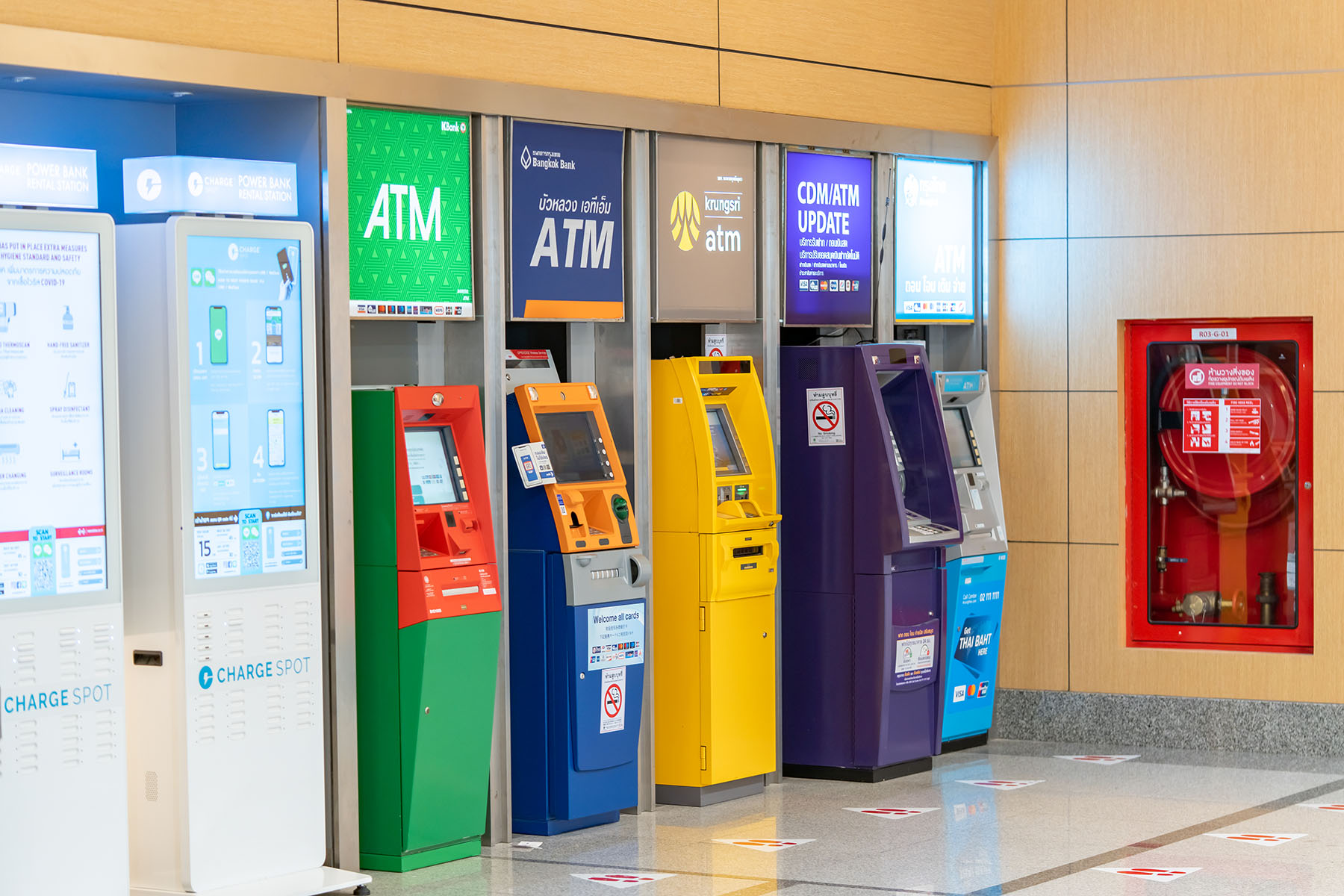Given its sunny weather, vibrant culture, and overall affordability, Thailand is a very attractive retirement destination. Tens of thousands of expats from around the world relocate to the country each year to take advantage of its savings-based visa system.
While getting legal residence in Thailand as a retiree is relatively straightforward, the rules around transferring pensions are more complicated. With the right knowledge and resources, you’ll find that retiring in there can be everything you dreamed of.
Read on for more information on these topics:
SJB Global
Let SJB Global guide you on a range of topics including saving plans, retirement and pensions transfers, investments, and more. This financial adviser provides a remote service, so you can contact their experts at a time that suits you. Get in touch with SJB Global to find out how they could help you in your life abroad.
Retiring in Thailand
Thailand is an increasingly sought-after destination for retirees, combining stunning beaches and lively cities with a warm climate and low cost of living. The country is particularly popular with American, British, Canadian, Swiss, and French expats.

Quality of life and economic rankings consistently rate Thailand as one of the world’s best countries in which to retire. These ranking systems tend to take into account the country’s low cost of living, availability of retirement visa options, and depth of community and cultural activities for retirees.
Like many countries, Thailand is navigating the challenges of a rapidly aging population. Thai Health Promotion Foundation data shows that people over 60 comprise more than 20% of the country’s population. This has resulted in reforms to state pension (เงินบำนาญของรัฐ) eligibility and proposals to increase the country’s retirement age.
Who can retire in Thailand?
To retire in Thailand as a foreign national, you’ll need to obtain a retirement visa (วีซ่าเกษียณอายุ). There are two types: one-year or 10-years. Alternatively, retirees can purchase a ‘Privilege’ visa.
Thailand grants retirement visas according to savings and income. Retirees must also take out private health insurance.
One-year retirement visa
The one-year retirement visa (Non-Immigrant Visa-Retirement O/A Long Stay) lasts a year and can be renewed upon expiration. To qualify, expats must meet the following conditions:
- You must be at least 50 years old and have no criminal convictions
- You must have either ฿800,000 in a Thai bank account or a monthly income of at least ฿65,000. If you don’t meet these conditions, your bank balance and income combined must exceed ฿800,000.
- You must have permanent residence in the country you’re applying from
To apply for a retirement visa, you must have a valid passport with at least one year remaining and provide evidence of your bank deposits. Depending on the location of your home country, you can apply online using the Thai E-Visa service.
Once your visa is approved, you’ll need to visit the Immigration Office (สำนักงานตรวจคนเข้าเมือง – ต.ม.) to sign the paperwork and stamp your passport. The application fee is payable in your home currency.
You’ll need to report your place of residence to the Immigration Police every 90 days. If you fail to do so, the visa will be invalidated. The visa may also be canceled if you conduct work activities in Thailand or leave the country without a re-entry permit.

You should attempt to renew your visa before the current one expires. To apply for an extension, you’ll need to provide proof of address, bank deposits, and your passport.
10-year retirement visa
The 10-year retirement visa (Non-Immigrant Visa-Retirement O/X) comes with stricter eligibility rules and greater benefits.
Firstly, the visa is only available to applicants from specific countries, as follows:
- Australia
- Canada
- Denmark
- Finland
- France
- Germany
- Italy
- Japan
- Netherlands
- Norway
- Sweden
- Switzerland
- United Kingdom
- United States of America
You’ll also need to meet these requirements:
- You must be at least 50 years old
- You must have at least ฿3 million in a bank account, or at least ฿1.8 million in a bank account and an annual income of ฿1.2 million. This balance must remain in your account for at least a year, and you must retain a balance of ฿1.5 million thereafter.
The 10-year visa initially lasts for five years, with the option to renew for the same period of time. The application process is the same as the 1-year visa.
There are some additional benefits to the 10-year visa. First, your spouse and any children under the age of 20 can join you in Thailand. You’ll also be allowed to do volunteer work and purchase a condominium.
Once you’ve acquired your visa, you must inform the Immigration Office of your continued residence in Thailand every 90 days. Additionally, you must report to the Immigration Office in person once a year.
Privilege Visa
Thailand also offers a ‘Privilege’ Visa program (formerly known as an ‘Elite’ visa). The program allows expats to buy a visa for a specific time and is designed to promote foreign investment in the country.

These visas aren’t explicitly designed for retirees but are available to them. Around 1% of expats living in Thailand use the program, mostly Chinese nationals.
The Privilege Visa program includes a multiple-entry visa to Thailand and a range of other perks, including concierge services, discounts at restaurants, and airport transfers. Retirees with a Privilege Visa don’t need to adhere to the financial and medical rules that apply for retirement visas.
The program offers four different durations of visa, as follows:
- 5-year ‘Gold’ visa, priced at ฿900,000
- 10-year ‘Platinum’ visa, priced at ฿1.5 million
- 15-year ‘Platinum’ visa, priced at ฿2.5 million
- ‘Reserve Card,’ priced at ฿5 million. This is only available to 100 new members per year.
What is Thailand’s retirement age?
The official required age to retire in Thailand is 60. This is when Thai nationals become eligible for the state pension. However, it is possible to retire and obtain an income from some contribution-based pensions from the age of 55.
How much is the Thai pension?
State pension (Old Age Allowance)
Thailand’s state pension is known as the ‘Old Age Allowance’ (OAA). Taxes fund it and are available to Thai nationals over 60.
The monthly allowance is paid at a flat rate based on the recipient’s age, ranging from ฿600 for people aged between 60–69 to ฿1,000 for those aged over 90.

The OAA is currently universal for all Thai nationals. However, the government is introducing a new system under which the OAA will be available only to people with low or no income.
SSO pension
Workers in Thailand (including expats) can receive a pension based on their monthly social security contributions. This is sometimes known as the ‘SSO pension.’ The pension can be claimed on retirement, anytime from age 55.
Workers who have made 15 years of social security contributions are entitled to a pension of 20% of their average wage at retirement, calculated on the last five years of income. An additional 1.5% is payable for each qualifying year above 15 years (21.5% for 16 years of contributions, 23% for 17 years, and so on).
Workers with less than 15 years of contributions are paid a lump sum on retirement, called the ‘old age gratuity. Self-employed workers can also obtain an SSO pension, though contribution levels and payments are calculated differently.
Civil service pensions
Civil servants and government officials in Thailand are covered by two civil servant pension schemes – a non-contribution-based scheme, which is funded by taxes, and the contribution-based Government Pension Fund. Both are available from the age of 60.
National Savings Fund
Anyone who doesn’t qualify for the SSO or civil service pension can choose to make contributions to the National Savings Fund (NSF). Money invested in the NSF is matched by the government (up to prescribed limits). It is then converted into a 20-year pension, which is paid from ages 60 to 80.
Workplace pensions
Some industries in Thailand operate occupational pension schemes (known as Employee Provident Funds or EPF). These involve the employer and employee, each contributing a percentage of salary. However, these schemes are relatively uncommon, given the other options available.
Transferring an international pension to Thailand
Expats moving to Thailand may be able to transfer pension savings from their home country. Rules vary depending on the type of pension and which country it’s from.

In some instances, retirees may be better served receiving foreign pension income in their home country and paying tax on it there. It is recommended that you take advice from an expert about your specific situation. Many expats living in Thailand receive a state pension from their home country. Each country has its own rules regarding pensions received overseas and taxation agreements, and some countries require retirees to be in their home country to register before they can receive their pensions overseas. Thailand has double tax agreements with some countries, such as the UK, to prevent income from being taxed in both countries. Some countries pay state pensions directly into a Thai bank account.
Does Thailand tax pensions?
Expats living in Thailand only pay income tax on Thai-sourced earnings. This means you don’t need to pay Thai taxes on overseas pension income.
Best places for expats to retire in Thailand
Whether you’re looking for an active retirement or a more relaxed way of life, Thailand offers a range of options for retirees.
Phuket
Hugely popular with tourists, Thailand’s largest island is also an excellent place for retirees. Forbes listed Phuket (ภูเก็ต) as one of the world’s top five jet-set retirement destinations in 2023. It cited the island’s beautiful beaches, historic old town, and large expat community as key attractions. The island is also easily accessible, served by its international airport.
The cost of living in Phuket is higher than in much of Thailand but is slightly lower than in Bangkok (กรุงเทพฯ). Retirees who want to avoid the hustle and bustle of tourist areas like Patong may prefer Kata and Karon.
Chiang Rai
Located in the north of Thailand, Chiang Rai (เชียงราย) offers a slower pace of life than the big cities and is very affordable for expats. Chiang Rai has many cultural attractions, such as museums and temples, plus shopping and dining options. Chang Rai City boasts plenty of public transport, healthcare services, and an international airport.
Chiang Mai
Also in Northern Thailand, Chiang Mai (เชียงใหม่) is very popular with retirees and has a large expat community. Formerly the capital of the Lanna Kingdom, the old city is home to beautiful Buddhist temples. Chiang Mai offers a more relaxed way of life and a cooler climate than Bangkok. Its beautiful hiking trails make it a good choice for expats who live an active lifestyle.
Hua Hin
Located around 200km from Bangkok, the town of Hua Hin (หัวหิน) is highly rated by retirees. The town boasts a stretch of pristine beaches and offers plenty of leisure activities, notably golf. The large expat population living here makes it easy to settle in.
Koh Samui
The beautiful island of Koh Samui (เกาะสมุย) is the perfect place for a relaxing retirement. Koh Samui benefits from excellent beaches, walking trails, restaurants, and spas. Expats generally settle in the northeastern region of the island. The price of housing and the cost of living here are more expensive than on the mainland.
Thai services, organizations, and clubs for older expats
Getting involved in the local community by joining a club or expat group is a great way to settle into retired life in Thailand. The good news is that all major Thai cities have English-speaking expat groups and clubs. These include the following:
You can find even more local groups on Facebook or Meetups.
Wills and inheritance in Thailand
Wills in Thailand
Expats living in Thailand do not need to make a Thai will (พินัยกรรม) by law, as foreign wills are applicable in case of death.
Thai wills predominantly concern local assets and Thai-sourced wealth. Creating a separate Thai will is prudent if you are a long-term resident, married to a citizen of Thailand, or have significant assets in the country.
Inheritance laws
If you don’t have any form of will, assets you own in Thailand will be distributed in line with the country’s inheritance laws:
- If you have a surviving spouse and children, your spouse will receive 50% of your assets, and the other 50% will be split between your children.
- If you have a spouse but no children, 50% will be allocated based on Thailand’s order of heirs: parents, brothers and sisters, half-brothers and sisters, grandparents, uncles, and aunts. Your spouse will receive the full estate if you have no heirs.
- If you have no surviving spouse or children, the full amount will be allocated based on the standard order of heirs.
Inheriting land and property
If you inherit land or property in Thailand as an expat, you’ll need to take advice on your options. Thailand limits foreigners from owning or inheriting land. Expats who inherit land must obtain consent from the Interior Ministry. If rejected, you must sell or transfer the land to a Thai national within one year.

However, if you inherit a condominium, you can retain ownership as long as foreigners own less than 50% of the overall space in the development. If this isn’t true, you’ll need to transfer or sell the property.
Inheritance tax
Inheritance tax (ภาษีมรดก) in Thailand is payable on estates valued above ฿100 million. The estate’s net value is determined after considering a series of exemptions. These include the deceased’s main home, funeral expenses, debts, and charitable donations.
The rates of inheritance tax payable vary depending on your relationship to the deceased. Estates that pass on to a surviving spouse are exempt from tax. Ascendants and descendants pay a rate of 5%, and other heirs pay 10%. Inheritance tax payments are due within 150 days of receiving the inheritance.
Healthcare for pensioners in Thailand
The country’s public healthcare system does not cover retired expats in Thailand. The Thai government only grants retirement visas to foreigners who can prove they have sufficient private healthcare coverage.
To qualify for a visa, you must have a health insurance policy with at least ฿400,000 inpatient and ฿40,000 outpatient cover. You should take out a policy with higher coverage limits than these minimum levels.
Policies come in many shapes and sizes, but a good private healthcare policy should enable you to access care with short waiting times, benefit from English-speaking services, and get reimbursement for your full healthcare costs.
Private healthcare in Thailand is split between local companies that offer private services and international companies that provide global insurance. The Thai General Insurance Association includes a list of insurers that offer policies to people with O/A and O/X visas.
Useful resources
- Thai E-Visa website – apply for Thailand visas online
- Thai General Insurance Association – find insurers with policies for retirees and pensioners
- Privilege Visas – see qualifications and benefits of Thailand’s privilege visa





